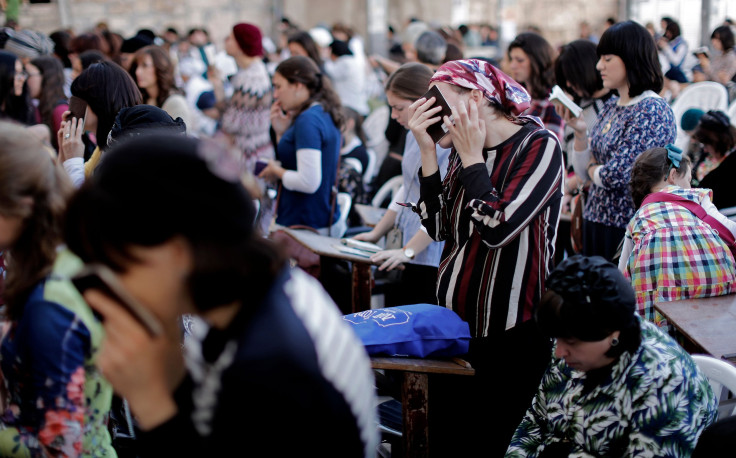Yom Kippur: Significance Of The Holiest Day In The Jewish Calendar

Yom Kippur is the holiest day of the Jewish year and is also considered the most important holiday in the Jewish faith. It falls in the month of Tishrei (September or October in the Gregorian calendar) and it concludes the “Days of Awe” a 10-day period of introspection and repentance that follows Rosh Hashanah, the Jewish New Year.
Jews observe the day by fasting, no food or drinks are consumed for 25 hours, and some people also wear white as a symbol of purity while many abstain from wearing make-up or perfume and bathing.
The Talmud — a central text of Judaism — specifies that people cannot wash or anoint their bodies with cosmetics or deodorant during the day of atonement. Some Jews also abstain from sex, during this time.
They also attend the prayer service where machzor — their prayer book for festivals — is used to read specific prayers. Unlike any other day, where there are only three prayer services, Yom Kippur has five: Ma'ariv, Shacharit, Musaf, Mincha and Ne'ilah. Services include private and public confessions.
Ne'ilah is the concluding service of Yom Kippur which lasts for an hour, during which the ark — where the scrolls of the Torah are kept — are left open throughout. This is considered the last chance to atone for sins before the end of the holiday. The day is spent in continuous prayer for forgiveness until the end of the day is marked with the sound of the shofar or ram's horn which signals the end of Yom Kippur after which Jews are able to feast, hence breaking the fast.
While not mandatory, it is considered a good religious practice to make a charitable donation the day before Yom Kippur.
In some communities, the ritual of Kapparot takes place the night before Yom Kippur. A live chicken or bag of coins is used to swing over a person’s head three times, thereby transferring their sins to the object or the creature.
The chicken is then slaughtered and donated to the poor for a meal ahead of the fast.
President Donald Trump was among the first ones to send his thoughts to anyone who was celebrating this holy festival.
Here is also a list of quotes from rabbis and other spiritual leaders reflecting their thoughts on Yom Kippur.
1. "Yom Kippur is our Day of Atonement, the most serious day of the year, when we do a 24-hour fast, refrain from normal joys of life, focus on the spiritual tasks of life, focus on living a life that God would have us live." - Rabbi Jonathan Miller
2. "We should not be the same person the day after Yom Kippur that we were the day before Yom Kippur. We should be moving ahead, raising our lives to a higher level." - Rabbi Marc D. Angel
3. "On Yom Kippur, we stand before God, hand on heart and say, 'God: it's not your fault.' We take responsibility. We are not who we should be, so life is not what it could be. We are the problem in the relationship, not You." - Rabbi Shaul Rosenblatt
© Copyright IBTimes 2025. All rights reserved.






















